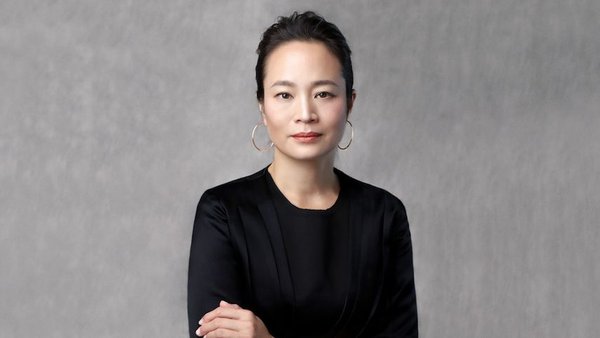‘Our ideas have to survive in the jungle, not the zoo’ /
Tom Beckman, global CCO of Weber Shandwick, on the year ahead for advertising, why 'integrated' became the holy grail for brands, and why people are thinking about AI the wrong way.
Phoebe O’Connell
/
Photo by Vlad Hilitanu on Unsplash
The ideas we put out today must be designed to survive in the jungle, not the zoo, says Tom Beckman, global chief creative officer at Weber Shandwick. The ‘zoo’ is a sanitised and predictable version of the world — dreamed up in the absence of proper insights or real-world context. ‘Our future relies on creating ideas for the real world,’ he says. ‘Ideas that will survive based on their relevance and news value. Because we all know what happens when we release animals raised in the zoo out into the jungle. They die in tragic, humiliating ways.’
We spoke to Beckman in October to find out where his focus would be in 2024, and he talked about generative AI, the industry’s inability to share credits, enshittification, and why brands try too hard. What follows is a lightly edited account of that conversation.
How would you formulate the big shifts in the marketing industry, and what’s behind the changes?
The framework for our industry is made up of a set of words with a shared definition. Words that dictate ways of working and the desired outcomes. Just like in politics. You could say that politics is really the fight over the definition of words. Politicians argue over what justice means. Or what freedom mean. Is freedom about absence of regulation, or is it about outcome for the many?
The same goes for marketing. There are a number of evergreen buzzwords over which people argue the definition. ‘Integrated’ is one of those words. So, it is kind of important to understand what the most relevant definition of integrated is, and also understand how it has changed over time.
Cannes introduced the integrated category in 2007. And it quickly became the Holy Grail in the industry. It was launched as a response to the rise of social media and the new media landscape. And the industry at the time was very much about paid channel activation. Therefore, the definition of integrated in 2007 was channel integration – making sure that your idea showed up as matching luggage in print and online and in film, etc.
And then with the rise of purpose around 2011 or so — Nike launched its Better World platform in 2010, which was kind of when it all started – most brands recognised that integrated is not necessarily about channels, it's more about integrating with your stakeholders and with society overall. Meaning your internal audiences, the talent market, but also experts, opinion leaders, decision makers, interest groups – everyone that your brand touches.
Tom Beckman, Weber Shandwick
The only way for brands to play a meaningful role in society is to make sure that you look beyond channels, and integrate your work into the community. So, starting around 2011, and for many years, the most relevant definition of the word integration was stakeholder integration.
Then with the rise of big data, consultancies and the in-house wave, the focus for integration was really business integration. People started asking how we made sure that we connect the idea to the sales department or distribution. To bottom line.
Business integration has been a big change agent in Cannes for the last five or so years. That doesn't mean that channel integration and stakeholder integration are gone. They all operate in parallel. But unless you can navigate these three layers, you will not be able to help your clients.
The paid-earned-owned PowerPoint slide is still good from a channel perspective. But you also need to cover stakeholder integration and business integration. Most people chase the big idea, but it’s equally important to take a big idea and turn it into the whole idea.
Tom Beckman, Weber Shandwick
How do these changes influence your work?
‘Earned media’ was the buzzword at Cannes 2009. The term had been brewing in the industry for a couple of years, and in 2009 Cannes Lions launched the PR category. And as we know, new categories added to Cannes Lions are a good reflection of where the industry is going. And just like the word ‘integrated’, the word ‘earned’ is an evergreen in our industry with changing definitions.
Back in 2009, ‘earned’ meant earned media; publicity and media relations. This was the time when the earned-paid-owned PowerPoint slides started to go mainstream. Because, again, at the time, ‘earned’ was a part of the channel strategy. Now, everything is pretty much earned. You have to earn your talent, your relationships, your reputation. Your whole business is earned – you need to earn it all and in harsh competition with everything that is out there. You have to be able to stand on your own two feet without artificial support.
The ideas we put out today must be designed to survive in the jungle — in the real world. Not in the zoo — the safe and made-up world of brands where the animals are being fed, given shelter, and are kept apart.
To me, ‘jungle vs zoo’ is one of the simplest and best ways to evaluate ideas today: ask yourself if the idea is strong enough to survive by itself in the jungle, or is it a beautiful creature that needs shelter and regular meals to survive? Is it designed for the real world or the artificial world of brands?
Tom Beckman, Weber Shandwick
How does that change the output of the industry?
Maybe the inconvenient answer is that we need to be more candid about the world, and about brands. Because, especially in the US, brands and agencies traditionally wanted everything to look neat and safe and feel good, all about the optics. But the truth is that the world is a very dark, messy place. And a majority of people are miserable, lonely, or fighting to make ends meet. Or even to survive the day. Maybe the marketing industry needs to reconsider the path of aspirational fairytales.
And maybe that is already happening. After all, one of the biggest themes in marketing today is the meme-ification of advertising and brands. Even if memes are not necessarily true or real, most of them get their energy from a shared understanding of the reality beyond the optics.
One of the best articles I read last year was the Matt Klein article in Contagious on the death of trends. It was a good wake-up call for all those people managing brands out there on social media, just waiting to jump on current events and put their brands in the conversation.
And the fact that 66% of people think that brands try too hard...it's a good grounding stat about what people think about brands and advertising, and how you need to behave and how we need to change.
Tom Beckman, Weber Shandwick
How do brands find their voice in this environment? And how do they understand the needs of their audiences?
If you dumb it down, there are basically two branding schools. You have the American branding school, which is about going to the consumer, asking them what they want, and then selling them that. And then there's the European branding school, which is more like, go to your R&D department, ask them what we're good at making, and then trying to market that.
Volvo is a good example of the European branding school. They were making safe cars decades before there was a market for it. Back in the day, people wanted fast cars, sexy cars. But the engineers at Volvo were the best at developing seat belts and protection features, so that was what they did.
I think the sun is setting on the American brand school because today people expect brands to have a point of view. Groucho Marx has a great quote: ‘I have my principles. If you don't like them I have others.’ And that's kind of how brands have been operating. And also, to be fair, that's how agencies have been advising brands.
Brands do all this research and have all these focus groups, asking are we cool? Are we good? Do you like us? At the same time, brands talk about being authentic. It’s peak irony when ‘authentic’ actually means fake.
If you want to make a new friend, you don't walk up to someone in a bar and say ‘What do you want me to talk about?’ That is not how it works. In the same way, brands need to do what they believe in, just like Volvo did, instead of asking consumers what they should do.
Our industry has long failed to share budgets and failed to share credits… The good thing about credits is that they don't get smaller when you share them.
Tom Beckman, Weber Shandwick
Does this have any implications on how agencies work and organise themselves?
One key insight from Cannes 2023 was that the best work was more about strategy than creativity. I've been fortunate enough to track the evolution of our industry through the lens of Cannes for many years, and every year, there are a couple of stand-out pieces of work that open up new pathways, or unlock new ways of thinking and become new benchmarks in terms of how to manifest ideas or solve problems.
Last was the first year, I would argue, that there was no stand-out piece in terms of creativity, but there were a lot of super strong strategy and insight pieces. Maybe the most talked about work was The Last Photo. That kind of naked insight is so strong it brings you to your knees. The execution is also beautiful, but it kind of writes itself. The execution is not the thing, the insight is the thing, and also what makes it survive in the jungle.
I think it's long due that we collapse the strategy and the creative department into one. I would love to see that happening more, with people shifting roles, and going to the other side of the aisle. So planners turning into creators, and vice versa, I think we all would benefit from that.
You talked about the failure of agencies or networks to collaborate. Has that got worse in recent years?
I'm not sure. But I would guess that a tough economic environment doesn’t help. Our industry has long failed to share budgets and failed to share credits. That's pretty much it. In that sense, advertising is much like academia — it’s a very similar system. Both are based on securing funding for your ideas and making sure your name is there on the scientific paper or case study. Sometimes, competition is healthy and evolves in the industry, but too often it stands in the way of the desired outcome. True consulting obviously rests on having the outcome in mind and partnering to get there.
Ronald Reagan, someone you may not quote on a day-to-day basis, said ‘there's no limit to what you can achieve if you don't care who gets the credit.’ And I’d say that's an important insight for our industry. The good thing about credits is that they don't get smaller when you share them. But for some reason, people are very cheap with their credits. They want to own the idea, and they want to get credit for it. But it’s also understandable. Just like in science, you want to know who the true talent is out of the list of the twenty names on the scientific paper.
The other thing is, of course, the fight over budgets, and how agencies, companies and brands are built, with P&Ls and budgets, and different silos. We all want to look good for our boss. So, you don't share the spoils even with your own colleagues. This happens between holding companies, between networks within the same holding company, and even within the same agency.
Without leadership on the agency side, colleagues fight over budgets and credits. And without leadership on the client side, agencies fight over budgets and credits. Overall we need more leadership — that is usually what’s missing in our industry.
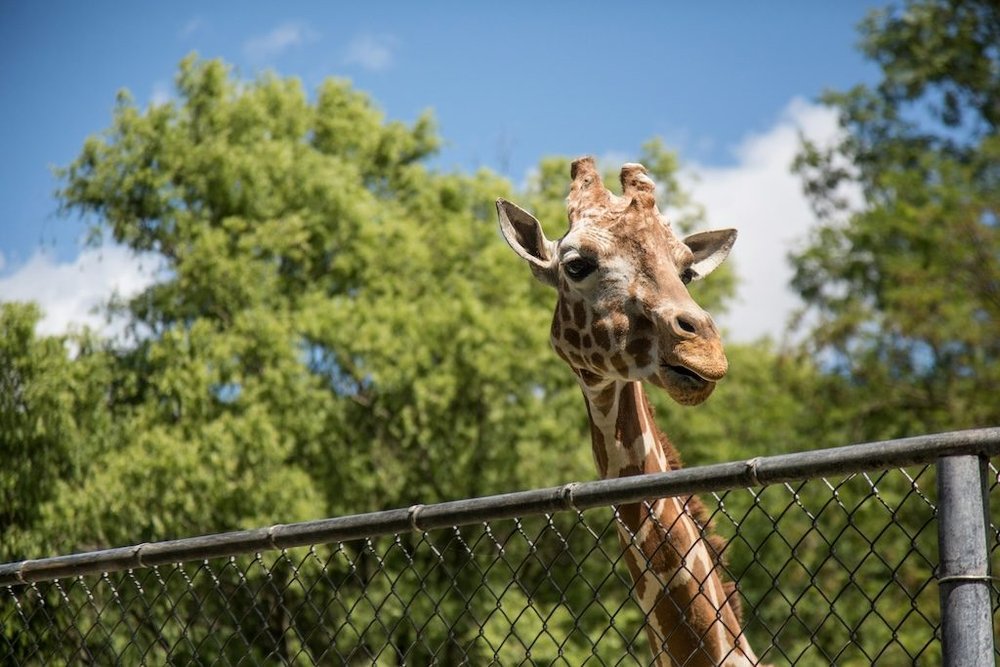
Photo by Alexander Ross on Unsplash
What about the change that AI will bring? What will it look like do you think?
The best perspective on the changes to marketing AI will bring that I’ve seen so far comes from Zoe Scaman. My takeaway from her teaching is that the big change will be driven by consumers, not by brands. That we will see a rapid growth and expansion of fan culture. Scaman calls this the third generation of user-generated content. The first generation was about participation through social, the second was about production through podcasts and influencing, and now the third is about creation — putting Hollywood-grade tools in the hands of fans empowering them to do spin-offs, trailers, design, and brand expansions.
I have no doubt that existing AI tools will dramatically change the craft, studio and production side of the industry this year. And that using generative AI in backgrounding, referencing and elementary strategising and ideation is already part of the playbook on the conceptual side of the business. But I’m very intrigued by Zoe Scaman’s point of view that we're focusing too much on the implications for brands and agencies, and too little on how it will change how consumers and citizens participate and engage with brands.
Photo by Timotheus Fröbel on Unsplash
Amidst all this change, what stays the same?
The analogy I’ve used for years now is also related to the jungle. And based on the insight that our industry works exactly like all the ecosystems on Earth: they are based on the principle of mutual value. For example, take the ecosystem of an apple tree. The only thing that the apple tree wants is to create a new apple tree. And in order to succeed, the apple tree creates a fruit around the seeds, so that the birds and the people pick this fruit and help spread the seeds. Good for the birds, but also good for the tree – that's the basic principle of mutual value. That's how nature works. And that's also how our industry works. And that will not change.
If we don't create mutual value, we will not be successful. Our business or our marketing is not going to be resilient, it's not going to live over time. We must create a fruit made out of entertainment, empowerment, education, or any other value so that our audiences benefit, and at the same time, help spread our seeds and grow our business.
The opposite of mutual value is ‘enshittification’, which is a good theory describing what happens when optimising one side of the equation. It's all pretty obvious. But in a greedy economic system, where people are optimising their own budgets or their own optics or short-term gains, it will not work. You don’t have to be an oracle to understand that basic insights like this need to be guiding principles for the industry.
Want more of the same? /
We don’t just write about best-in-class campaigns, interviews and trends. Our Members also receive access to briefings, online training, webinars, live events and much more.
